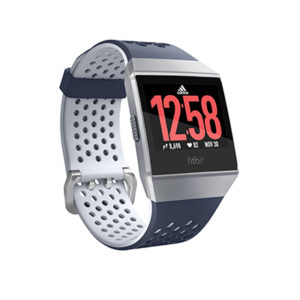
Increasing your training load to meet new goals places a huge array of demands on your body and therefore correct preparation is key. When you set yourself new targets and push yourself to the next level, you will need to make sure you make the right nutritional choices to compliment these changes in workload. There are a few things you will need to consider and these are discussed below.
Adapting your diet
As your workload increases you will need to make changes to your everyday diet to ensure you are properly fuelled and ready for your sessions. Firstly, you will need to increase your carbohydrate intake and taper it relative to training intensity and duration each day. Below are the recommendations for carbohydrate intake based on the amount of exercise you are doing each day:
– ~1 hour per day: 5 – 7g / kg BM/day (that’s 5-7g x KG of body mass per day)
– 1 – 3 hours per day: 7 – 10g / kg BM/day
With an increase in training load you will also place heavy demands on the muscle resulting in increased muscle damage. Therefore, your protein requirements will increase to allow for optimal recovery and training adaptation. The current recommendation for endurance athletes is 1.2 – 1.6g / kg BM/day. Try to eat a portion of high quality protein, such as chicken tuna or eggs with every meal.
High protein snacks can also be a great option for days when training intensity is lower. On these days when carbohydrate requirements are lower, try consuming high protein snacks instead. Some good examples include handful of nuts, high protein yogurt, eggs, milk and pumpkin seeds.
Fat intake is also important to consider. Although not needed in huge amounts, fats are essential nutrients for many physiological functions and are also a good fuel source. Try to ensure you are eating enough ‘healthy’ fats (monounsaturated and polyunsaturated) and aim for two to three portions per day. This includes things like avocados, nuts, oily fish and olive oil.
Finally, it is well known that exercise places huge stresses on the body’s immune system and causes immunosuppression. To help boost your immune system, you must ensure that you are eating plenty of fruit and vegetables. Fill your meals with vegetables, especially low calorie ones, and aim for around two to three portions of fruit per day. This will provide you with loads of essential vitamins and minerals needed to optimise performance.
Practice Fuelling Strategies
As your sessions get longer, you will need to make sure you have a fuelling strategy in place to allow you to enhance performance. Remember that for exercise lasting longer than 90 minutes, you will need to take on some sort of fuel in order to avoid fatigue.
You should be aiming for around 60g of carbohydrate per hour (this can increase to 90g/h for sessions lasting longer than 3 hours). If using a product such as the Etixx Triple Action Energy Gel, which contains 24g of carbohydrate, you should be consuming ~3 per hour in order to maintain performance.
This may also mean adapting the time at which you start to take on fuel. For really long and intense sessions, you may want to try taking on some fuel a bit earlier on to avoid fatigue and ‘hitting the wall’.
Importance of Recovery
When your training load increases, the recovery from each session becomes even more important.
When you finish a session, try to get some form of nutrients in as quickly as you can. A great way to do this is in the form of recovery drinks, such as the Etixx Recovery Shake, which contains both carbohydrates for muscle glycogen replenishment and protein to stimulate the muscle growth and repair process. These are easy to carry around, quick to make and should be consumed over a 15-30 minute period.
However, the recovery should not stop there and you should make sure you properly refuel and recover with a meal a couple of hours after the end of your session. This should again contain carbohydrates and protein. A good example would be a jacket potato with grilled chicken breast and some leafy green vegetables.
After particularly long sessions or races, you should pay close attention to your recovery over a 24-hour period, ensuring you are taking on enough protein and carbohydrate to fully restore what you have depleted.
Consider Supplements
During periods of increased training demand you are placing huge stresses on your body and therefore supplementation can be a great way to ensure you are optimising nutrient intake. Some supplements you might want to consider are:
Magnesium: Magnesium plays an important role in muscle contraction and energy production and a large deficiency of magnesium causes structural damage to muscle cells.
Iron: Iron plays an important role in oxygen transportation, energy production, neural function and the immune system. Deficiencies in iron can leave you feeling extremely tired and are most common in women, vegetarians and those who do a lot of endurance exercise.
Glucosamine sulphate & Chondroitin: When training workload increases, especially with endurance running, you will place huge demands on your joints and soft tissue. Glucosamine sulphate and chondroitin have both been found to restore cartilage cells and prevent cartilage breakdown.
Listen to your body
The most important thing to remember when you’re training load increases is to make changes relative to how you are feeling. For example, if you’re constantly feeling like you have no energy on sessions, try increasing your carbohydrate intake, or if you’re starting all your sessions feeling bloated and heavy, try decreasing your carbohydrate intake
Also, if you find yourself experiencing GI problems during exercise, try decreasing your fibre intake in the meals before your session as this can slow digestion. GI problems can also be caused by caffeine so consider limiting coffee as well.
Remember that all nutrition and fuelling strategies are individual. Make necessary changes alongside your training schedule to ensure you find what works for you.
Charlotte Kennedy is a sports nutritionist at Etixx. For more information on Etixx sports nutrition, please visit: www.etixxsports.com






